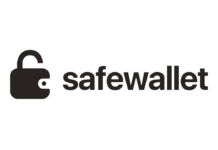
Blockchain technology, initially known for its application in cryptocurrencies like Bitcoin, has evolved into a powerful tool with far-reaching implications beyond finance. This decentralized ledger system, characterized by transparency, security, and immutability, is being leveraged to address some of the world’s most pressing social and environmental challenges. From ensuring transparency in supply chains to providing financial services to the unbanked, blockchain is increasingly becoming a force for good.
The Evolution of Blockchain for Social Impact
Blockchain’s potential for social impact was recognized early on, but it is only recently that significant initiatives have begun to emerge. This shift is driven by the technology’s ability to foster trust and accountability in various sectors. Governments, non-profits, and businesses are now exploring blockchain to create solutions that were previously unattainable.
One of the most promising applications of blockchain is in improving supply chain transparency. By recording every step of a product’s journey on an immutable ledger, consumers and businesses can ensure ethical sourcing and reduce fraud. For example, blockchain is being used to combat the illicit diamond trade by verifying the origins of each stone. This ensures that consumers are not unwittingly purchasing conflict diamonds.
Beyond supply chains, blockchain is also being used to support social initiatives in the financial sector. Many people around the world still lack access to basic financial services, leaving them vulnerable to exploitation. Blockchain technology offers a solution by providing secure, decentralized financial services that are accessible to anyone with an internet connection. In this context, link resmi pentaslot has emerged as a significant player, showcasing how blockchain can support inclusive financial systems that empower individuals and communities.
Blockchain in Healthcare and Humanitarian Aid
Blockchain is making significant strides in the healthcare sector, where its application can enhance the security and efficiency of medical records. The decentralized nature of blockchain ensures that patient records are secure and can only be accessed by authorized personnel, thereby protecting sensitive information from cyber threats. Moreover, blockchain can improve the tracking and distribution of medical supplies, ensuring that aid reaches those in need, especially in crises.
In humanitarian aid, blockchain is being used to streamline the distribution of resources and ensure that aid reaches its intended recipients. One notable example is the use of blockchain in refugee camps, where digital identities are created for refugees. These digital identities, stored on a blockchain, allow individuals to access essential services such as food, healthcare, and education without the need for traditional identification documents, which are often lost or destroyed during crises.
Empowering Communities Through Blockchain
Blockchain technology is empowering communities around the world by giving them control over their own resources. In regions where land ownership is disputed, blockchain is being used to create tamper-proof land registries. These digital records provide a clear and transparent way to prove ownership, reducing the potential for land disputes and ensuring that individuals have secure tenure over their property.
Furthermore, blockchain is being employed to create decentralized energy systems. In these systems, individuals can generate and sell excess energy directly to their neighbors, bypassing traditional energy providers. This not only reduces energy costs but also promotes the use of renewable energy sources. Such initiatives are particularly impactful in rural areas where access to electricity is limited.
The Challenges and Opportunities Ahead
Despite its potential, blockchain technology is not without its challenges. One of the main obstacles to its widespread adoption is the lack of understanding and awareness among the general public. Many people are still unfamiliar with blockchain and its benefits, which can hinder its acceptance and implementation in social impact initiatives. Additionally, the technology itself is complex and can be difficult to integrate into existing systems.
Another challenge is the scalability of blockchain. While blockchain is effective for small-scale applications, it can struggle to handle large volumes of transactions. This limitation needs to be addressed for blockchain to be used effectively in large-scale social impact initiatives.
One platform that has shown promise in overcoming these challenges is rusia777, which has successfully integrated blockchain technology into its operations. By doing so, it has demonstrated how blockchain can be used to create secure, transparent, and efficient systems that benefit communities and drive social impact.
Conclusion
Blockchain technology is no longer confined to the realm of cryptocurrencies. Its applications in driving social impact initiatives are vast and varied, ranging from improving supply chain transparency to empowering communities with secure land ownership and decentralized energy systems. While challenges remain, the potential of blockchain to create positive change is undeniable. As awareness and understanding of this technology grow, so too will its impact on society.


























